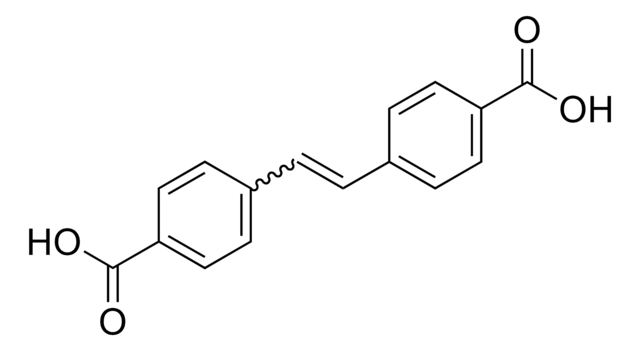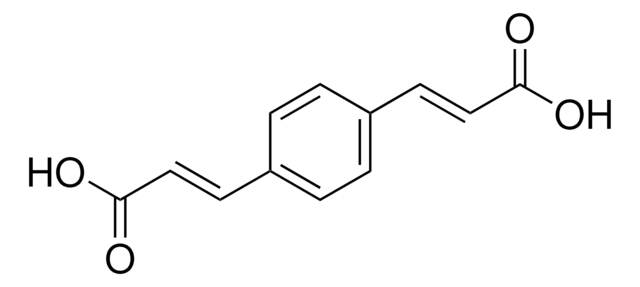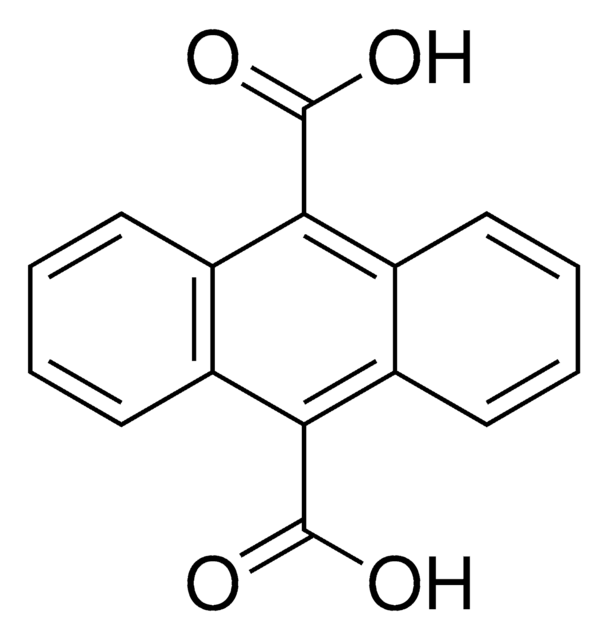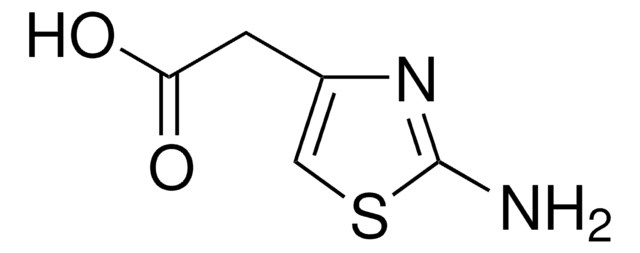About This Item
Recommended Products
form
solid
greener alternative product characteristics
Design for Energy Efficiency
Learn more about the Principles of Green Chemistry.
sustainability
Greener Alternative Product
mp
200-205 °C
greener alternative category
, Enabling
SMILES string
Nc1cc(ccc1\C=C\c2ccc(cc2N)C(O)=O)C(O)=O
InChI
1S/C16H14N2O4/c17-13-7-11(15(19)20)5-3-9(13)1-2-10-4-6-12(16(21)22)8-14(10)18/h1-8H,17-18H2,(H,19,20)(H,21,22)/b2-1+
InChI key
QEDSDXRFNGAJKN-OWOJBTEDSA-N
General description
Application
Choose from one of the most recent versions:
Certificates of Analysis (COA)
Don't see the Right Version?
If you require a particular version, you can look up a specific certificate by the Lot or Batch number.
Already Own This Product?
Find documentation for the products that you have recently purchased in the Document Library.
Customers Also Viewed
Articles
Metal-organic frameworks offer high surface area materials for alternative energy applications through simple synthetic strategies.
Our team of scientists has experience in all areas of research including Life Science, Material Science, Chemical Synthesis, Chromatography, Analytical and many others.
Contact Technical Service












